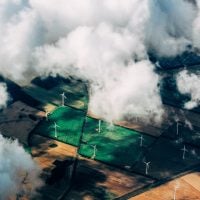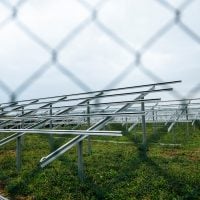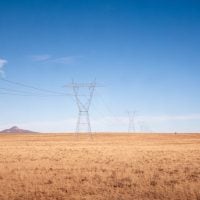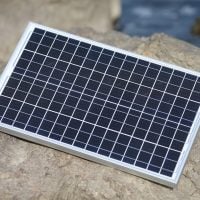In the realm of climate-energy initiatives, donor databases serve as invaluable resources for non-governmental organizations (NGOs) seeking funding. These databases compile information about potential funders, including foundations, government agencies, and corporate sponsors, all of which are crucial for financing projects aimed at combating climate change and promoting sustainable energy solutions. By leveraging these databases, NGOs can identify funding opportunities that align with their mission and objectives, ultimately enhancing their capacity to implement impactful projects.
Moreover, donor databases provide insights into the preferences and priorities of various funders. Understanding these nuances allows NGOs to tailor their proposals effectively, increasing the likelihood of securing funding. For instance, a database may reveal that a particular foundation prioritizes renewable energy projects over fossil fuel alternatives.
By aligning their project proposals with the funder’s interests, NGOs can significantly improve their chances of receiving financial support. Thus, the strategic use of donor databases is not just about finding funding; it’s about fostering meaningful partnerships that can drive long-term change in climate-energy sectors. Are You Working on Solar Innovation or Clean Energy Access? Join us to receive updates.
Key Takeaways
- Donor databases are crucial for accessing climate-energy funding and should be understood and utilized effectively.
- Research and identify relevant donor databases to ensure that the funding opportunities align with the organization’s goals and objectives.
- Navigate the application process for donor databases with attention to detail and thoroughness to increase the chances of securing funding.
- Build a strong case for climate-energy funding by highlighting the organization’s impact, effectiveness, and potential for success.
- Leverage networking and relationships within donor databases to expand opportunities and strengthen partnerships for greater impact.
Researching and Identifying Relevant Donor Databases
The first step in harnessing the power of donor databases is conducting thorough research to identify which databases are most relevant to your organization’s goals. There are numerous databases available, each with its unique focus and strengths. Some may specialize in environmental causes, while others might cater to broader social issues that include climate-energy initiatives.
It is essential to evaluate these databases based on your specific needs, such as geographic focus, funding amounts, and types of projects supported. Once you have identified potential donor databases, take the time to explore their features and functionalities. Many databases offer advanced search options that allow you to filter funders by criteria such as funding history, application deadlines, and geographic focus areas.
For example, if your NGO is working on a solar energy project in Southeast Asia, you can use these filters to find funders who have previously supported similar initiatives in that region. This targeted approach not only saves time but also increases the likelihood of finding suitable funding opportunities.
Navigating the Application Process for Donor Databases

Navigating the application process for donor databases can be daunting, especially for organizations new to grant writing or funding applications. Each database may have its own set of requirements and procedures, making it crucial to familiarize yourself with these before submitting any proposals. Start by reviewing the guidelines provided by each database carefully; this will help you understand what information is required and how to present your project effectively.
Additionally, many donor databases offer resources such as webinars, workshops, or FAQs that can provide valuable insights into the application process. Engaging with these resources can help demystify the process and equip you with best practices for crafting compelling proposals. For instance, some databases may emphasize the importance of measurable outcomes in project proposals.
By incorporating clear metrics and evaluation strategies into your application, you can demonstrate your organization’s commitment to accountability and impact, which can resonate well with potential funders.
Building a Strong Case for Climate-Energy Funding
A compelling case for funding is essential when seeking support for climate-energy projects. This involves articulating not only the urgency of the climate crisis but also how your project addresses specific challenges within this context. Start by providing a clear overview of the problem your project aims to solve, supported by relevant data and research.
For example, if your initiative focuses on reducing carbon emissions through renewable energy adoption, include statistics on current emissions levels and projections for future impacts if no action is taken. In addition to outlining the problem, it is crucial to present a well-defined solution that highlights the innovative aspects of your project. Funders are often looking for unique approaches that can serve as models for broader implementation.
Therefore, detailing how your project will be executed, who will be involved, and what resources are needed can help paint a vivid picture of its potential impact. Furthermore, including testimonials or case studies from previous successful projects can bolster your credibility and demonstrate your organization’s capacity to deliver results.
Leveraging Networking and Relationships within Donor Databases
Building relationships within donor databases is a strategic approach that can enhance your organization’s funding prospects. Networking with other NGOs, funders, and stakeholders can provide valuable insights into funding trends and opportunities that may not be widely advertised. Attend events or workshops hosted by donor organizations or industry conferences where you can connect with potential funders face-to-face.
These interactions can lead to meaningful conversations about your projects and establish rapport that may benefit future funding applications. Additionally, consider joining online forums or groups related to climate-energy funding where you can share experiences and learn from others in the field. Engaging in discussions about challenges and successes can help you refine your approach and identify new strategies for securing funding.
Remember that building relationships takes time; therefore, be patient and persistent in nurturing these connections. A strong network can open doors to collaborative opportunities and increase your organization’s visibility within the donor community.
Staying Updated on Funding Opportunities within Donor Databases
The landscape of funding opportunities is constantly evolving, making it essential for NGOs to stay informed about new grants and initiatives within donor databases. Many databases offer subscription services or newsletters that provide updates on upcoming funding opportunities, application deadlines, and changes in funder priorities. By subscribing to these services, you can ensure that you are among the first to know about relevant opportunities that align with your organization’s mission.
In addition to subscribing to updates, consider setting aside regular time each week or month to review donor databases actively. This proactive approach allows you to identify new opportunities early on and gives you ample time to prepare strong applications. Furthermore, engaging with social media platforms where funders share news about their initiatives can also be beneficial.
Following relevant organizations on platforms like Twitter or LinkedIn can provide real-time updates and insights into their funding strategies.
Utilizing Data and Analytics to Maximize Funding Potential
In today’s data-driven world, leveraging analytics can significantly enhance an NGO’s ability to secure funding from donor databases. By analyzing past funding trends and outcomes, organizations can identify which types of projects have been successful in attracting support from specific funders. This information can inform future proposals and help tailor applications to meet funder expectations more effectively.
Moreover, utilizing data analytics tools can help NGOs track their own performance metrics over time. By demonstrating a history of successful project implementation and measurable outcomes, organizations can build a compelling case for why they should be funded again or why new funders should consider supporting them. For instance, if an NGO has successfully reduced carbon emissions by a certain percentage through previous projects, presenting this data in future applications can serve as powerful evidence of their capability and reliability.
Collaborating with Other Organizations in Donor Databases
Collaboration is a powerful strategy for NGOs seeking climate-energy funding through donor databases. Partnering with other organizations can enhance project proposals by pooling resources, expertise, and networks. When multiple organizations come together around a common goal, they can present a more comprehensive approach that addresses various aspects of a problem—making it more appealing to funders.
For example, if one organization specializes in renewable energy technology while another focuses on community engagement and education, collaborating on a project that combines both strengths can lead to a more robust proposal. Additionally, joint applications often demonstrate a commitment to collaboration and shared impact, which many funders value highly. When approaching potential partners, look for organizations with complementary missions or expertise; this synergy can lead to innovative solutions that attract greater funding support.
Reporting and Accountability in Donor Databases
Once funding has been secured through donor databases, maintaining transparency through reporting and accountability is crucial for building trust with funders. Most donors require regular updates on project progress, financial expenditures, and outcomes achieved. Establishing a clear reporting framework from the outset will help ensure that you meet these expectations while also providing valuable insights into your project’s effectiveness.
In addition to fulfilling reporting requirements, consider using this opportunity to showcase successes and lessons learned throughout the project lifecycle. Sharing stories of impact not only strengthens your relationship with current funders but also enhances your organization’s reputation within the broader donor community. By demonstrating accountability through transparent reporting practices, NGOs can position themselves as trustworthy partners—making it easier to secure future funding.
Managing and Cultivating Donor Relationships
Effective management of donor relationships is essential for long-term success in securing climate-energy funding through donor databases. Building strong relationships involves regular communication with funders beyond just reporting requirements; it includes sharing updates on organizational developments or inviting them to events related to funded projects. This ongoing engagement fosters a sense of partnership and keeps donors invested in your organization’s mission.
Additionally, consider implementing a donor stewardship plan that outlines how you will cultivate relationships over time. This plan could include personalized thank-you notes after receiving funding or periodic check-ins to discuss project progress and gather feedback from donors. By actively managing these relationships, NGOs can create a loyal base of supporters who are more likely to provide continued funding or recommend your organization to other potential funders.
Maximizing Impact and Effectiveness of Climate-Energy Funding from Donor Databases
Ultimately, the goal of securing funding through donor databases is to maximize the impact of climate-energy initiatives on communities and ecosystems alike. To achieve this, NGOs must focus on implementing projects effectively while continuously evaluating their outcomes against established goals. Regular assessments allow organizations to identify areas for improvement and adapt strategies as needed—ensuring that they remain responsive to changing circumstances.
Furthermore, sharing successes with stakeholders—including donors—can amplify the impact of funded projects beyond immediate beneficiaries. By disseminating findings through reports or presentations at conferences, NGOs contribute valuable knowledge to the broader field of climate-energy work. This not only enhances their credibility but also positions them as thought leaders who are committed to driving systemic change in addressing climate challenges.
In conclusion, navigating donor databases effectively requires a multifaceted approach that encompasses research, relationship-building, strategic proposal writing, and ongoing accountability practices. By leveraging these strategies thoughtfully, NGOs can enhance their capacity to secure vital funding for climate-energy initiatives—ultimately contributing to a more sustainable future for all.










































